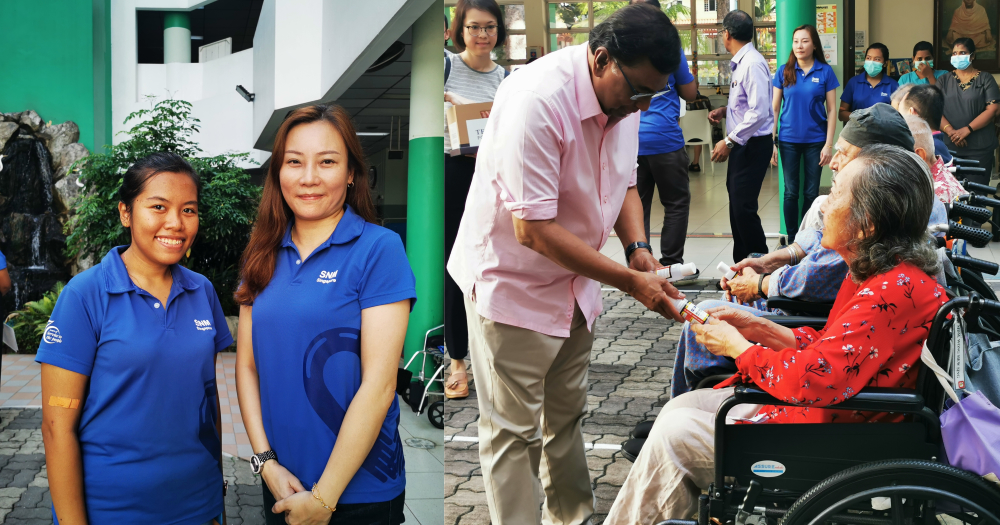Almost three months since the start of Covid-19 outbreak, most of us would know by now that the elderly are among the most vulnerable to the coronavirus.
For this reason, the SAFRA Jurong cluster raised great concern with many senior citizens gathering at the dinner event held in February. Some attended the events and continued with daily routines despite feeling unwell.
Mass activities involving senior folks have since been cancelled or suspended during this period as part of additional precautionary measures.
Apart from the active and independent elderly, another at-risk group is the elderly residents of nursing homes.
But of course, staff at these nursing homes as well as external organisations have been looking out for this group of elderly at risk in the crisis.
Distribution of hand sanitisers at Sree Narayana Nursing Home
In the morning of March 13, representatives and volunteers from the Temasek Foundation (TF) visited staff and residents at the Sree Narayana Nursing Home and distributed hand sanitisers to them.
Its chairman Richard Magnus said to the press at Sree Narayana Nursing Home that he hopes the provision of hand sanitisers can help the home's staff and residents, as well as other vulnerable groups, to overcome this difficult period together.
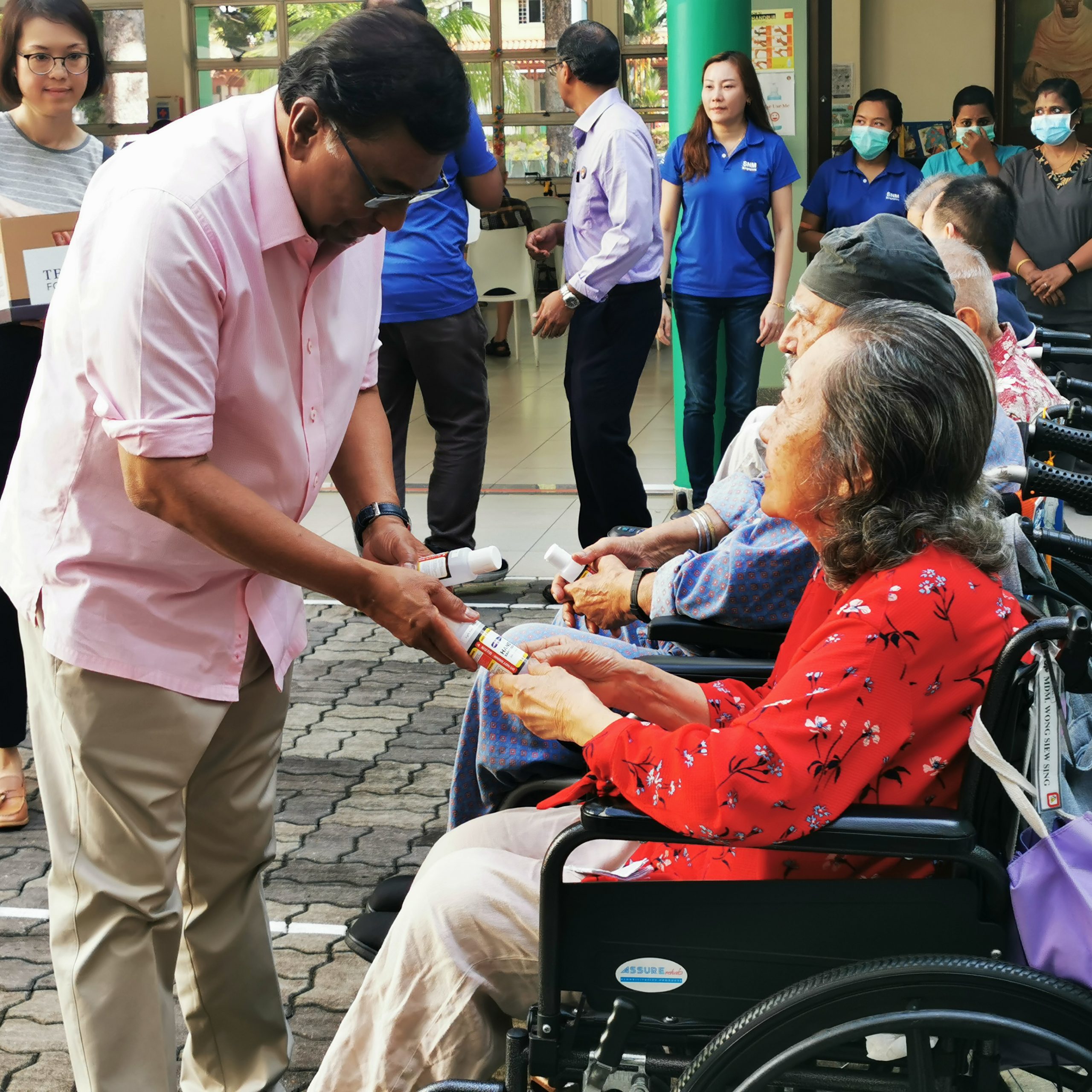 Temasek Foundation Chairman, Richard Magnus, distributing hand sanitisers to elderly residents at Sree Narayana Mission Home. Photo by Zheng Zhangxin.
Temasek Foundation Chairman, Richard Magnus, distributing hand sanitisers to elderly residents at Sree Narayana Mission Home. Photo by Zheng Zhangxin.
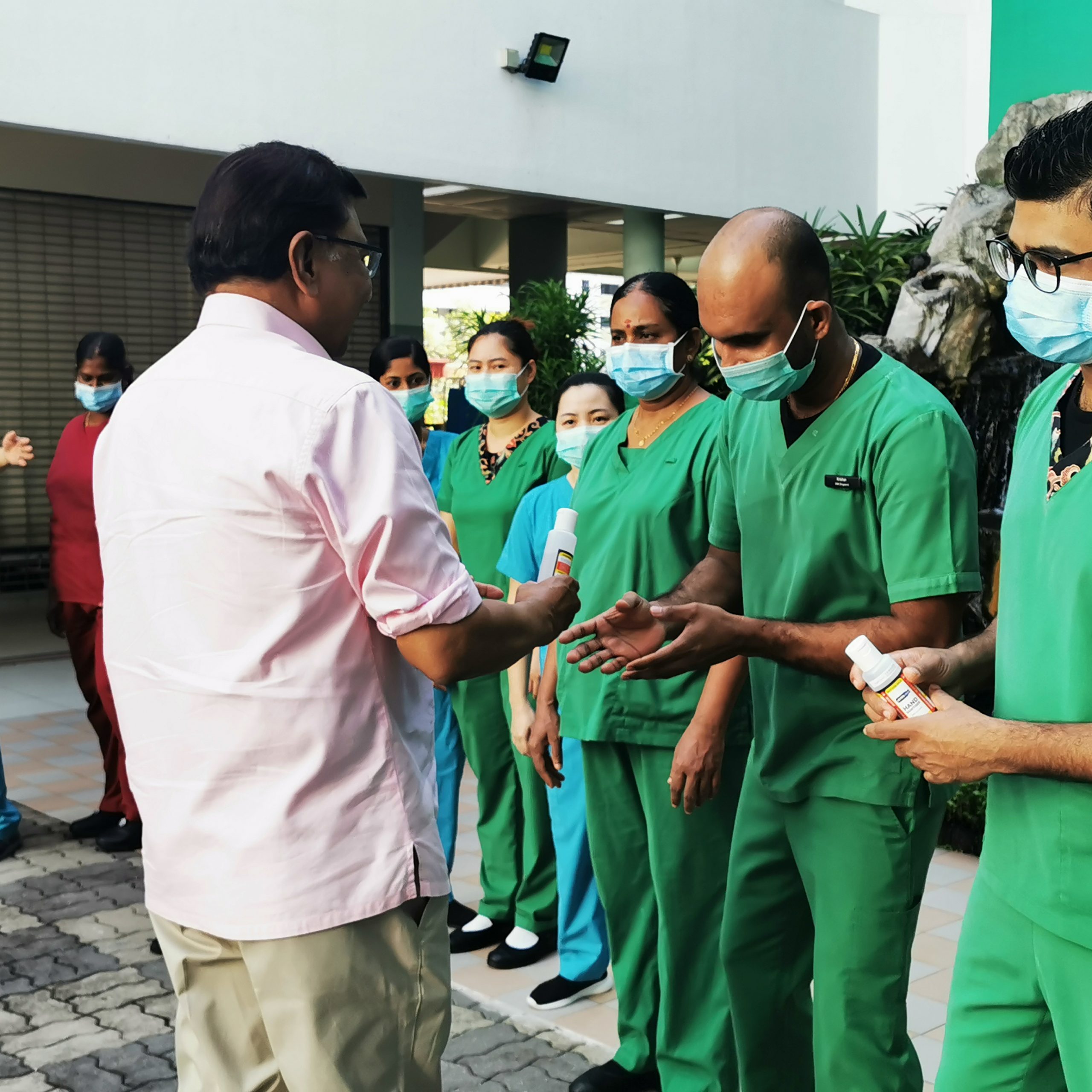 Temasek Foundation Chairman, Richard Magnus, distributing hand sanitisers to staff of Sree Narayana Mission Home. Photo by Zheng Zhangxin.
Temasek Foundation Chairman, Richard Magnus, distributing hand sanitisers to staff of Sree Narayana Mission Home. Photo by Zheng Zhangxin.
The home's director of nursing, Jezsica Su, said the hand sanitisers given to them were timely as even their regular supplier has limited stocks of hand sanitisers during this critical period.
Hand sanitisers are used frequently by the home's staff and residents every day, Su explains, before serving meals as well as before and after activities conducted with the elderly residents.
TF will be distributing hand sanitisers to over 400 organisations islandwide as an ongoing initiative supported by the Agency for Integrated Care (AIC).
These include 79 nursing homes and hospices, 162 day rehabilitation or care centres, senior care centres, active ageing hubs, maintenance day care centres as well as 160 senior activity centres.
TF will also be giving hand sanitisers to frontline workers like those in the transport sector.Limiting visitors to Next-of-Kins only
Since Feb. 8 when DORSCON Orange was activated, the home has been limiting its visitors to just the residents' next-of-kins (NOKs).
This means it is suspending all volunteer-driven activities as well.
Only one NOK visitor is allowed each time and they are not allowed into the wards.
These NOKs, however, can spend time with the residents in open spaces, such as this designated visitor area, that are well ventilated during visiting hours.
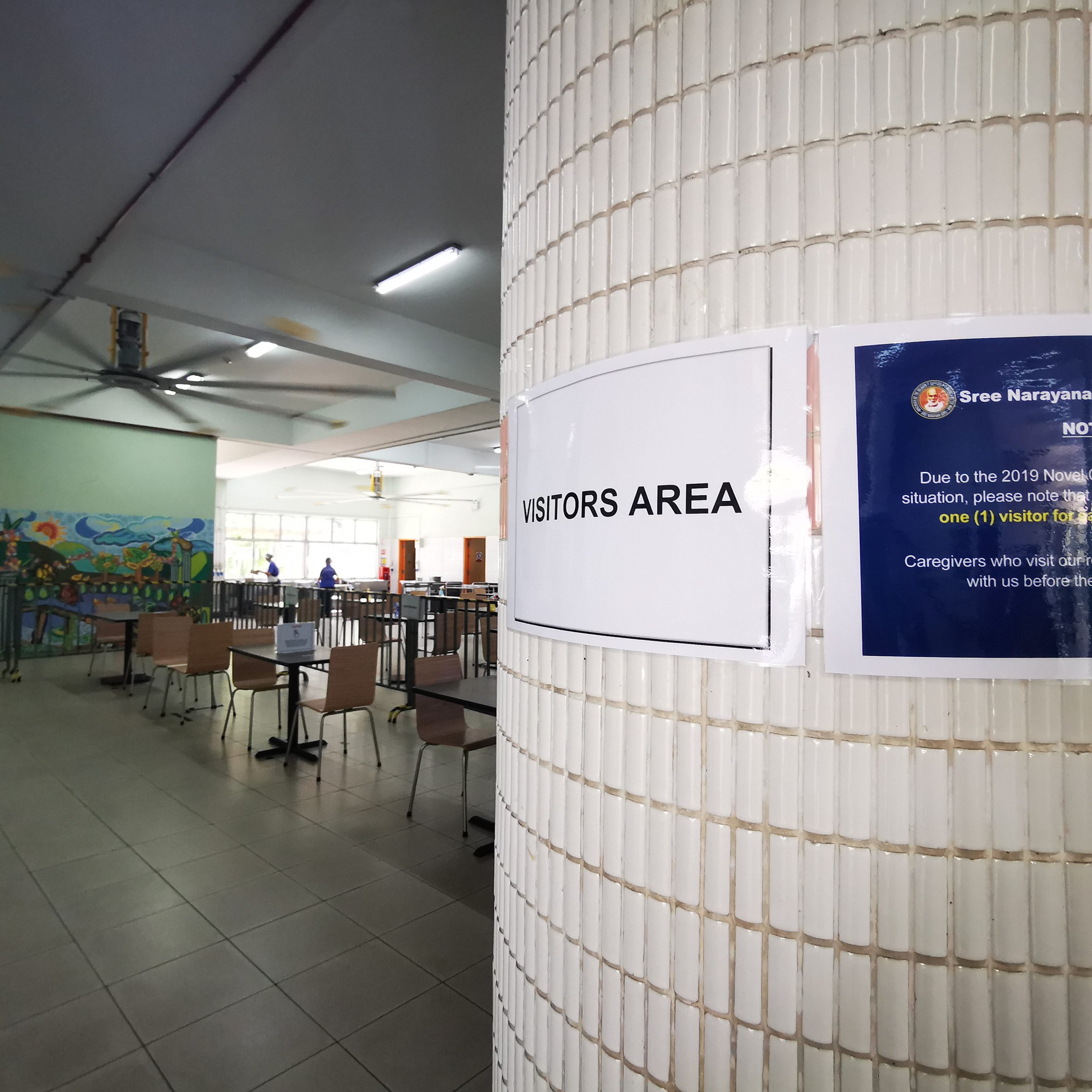 Sree Narayana Mission Home visitor area. Photo by Zheng Zhangxin.
Sree Narayana Mission Home visitor area. Photo by Zheng Zhangxin.
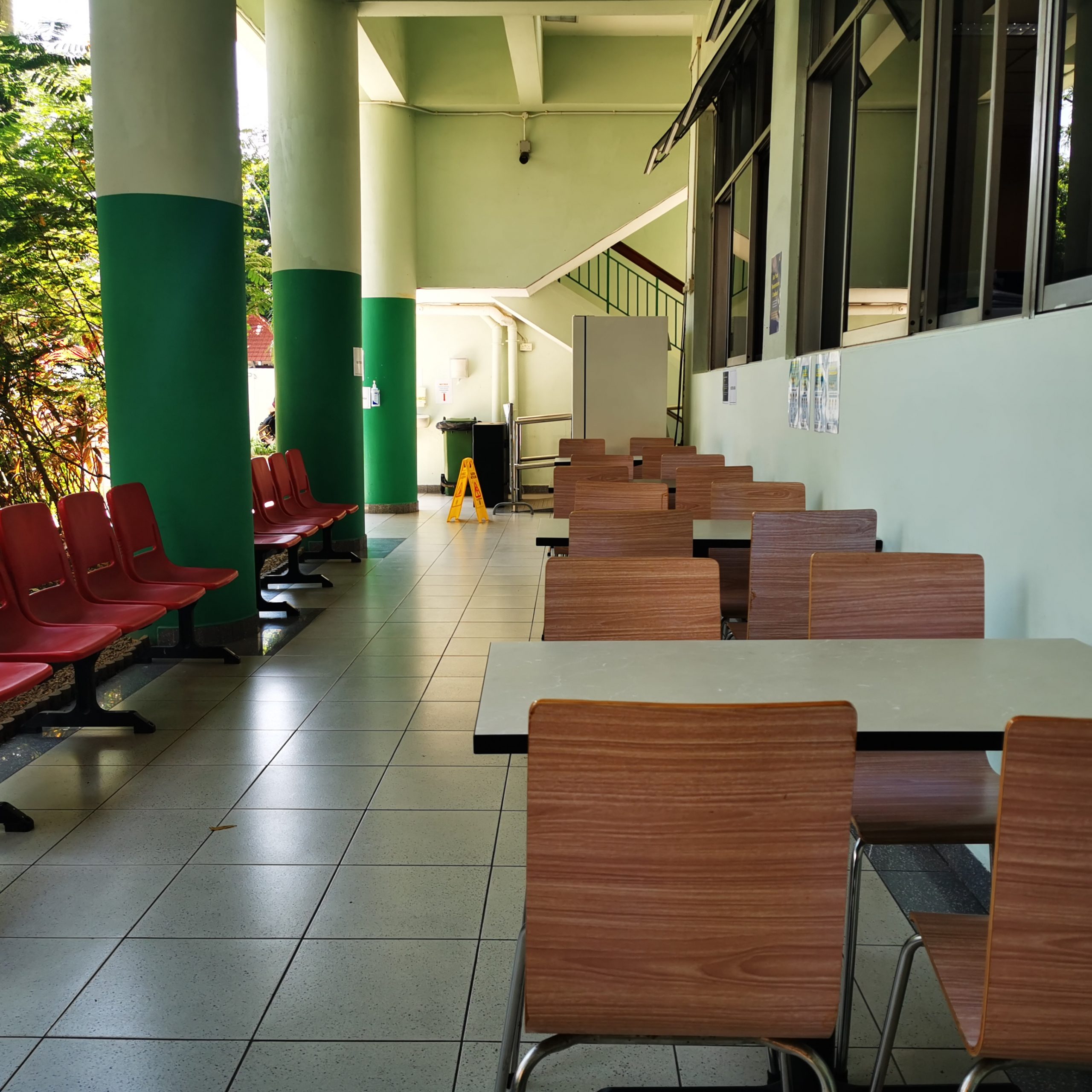 Visitor area along the corridor near the entrance of Sree Narayana Mission home. Photo by Zheng Zhangxin.
Visitor area along the corridor near the entrance of Sree Narayana Mission home. Photo by Zheng Zhangxin.
At the entrance, there are at least three sinks where visitors can wash or sanitise their hands.
Before entering the home, visitors will also have to record their details and take their temperatures.
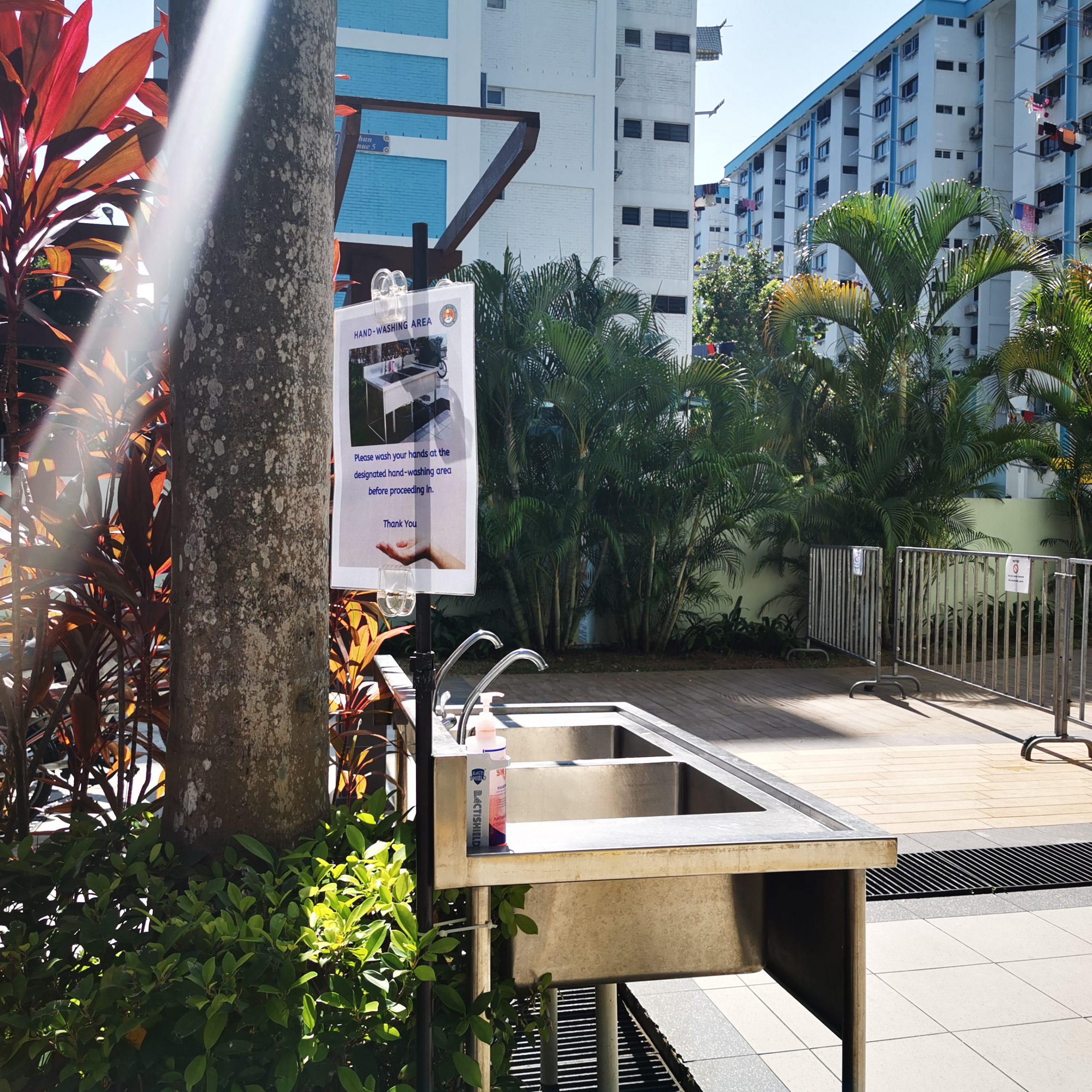 Reminder to visitors to wash their hands before entering the home. Photo by Zheng Zhangxin.
Reminder to visitors to wash their hands before entering the home. Photo by Zheng Zhangxin.
Not leaving the vulnerable behind
As volunteers are not able to visit and conduct activities for the home's residents during this time, its staff have come up with alternative plans to engage the residents as per usual.
But of course, the home still keeps the volunteers updated — its CEO S. Devendran says:
"As far as volunteers are concerned, we are keeping in touch with them, we keep them updated [as] they are part of us.”
Noor Syazwani and two colleagues of hers from the home's programme team also say they have planned a variety of in-house activities to engage residents.
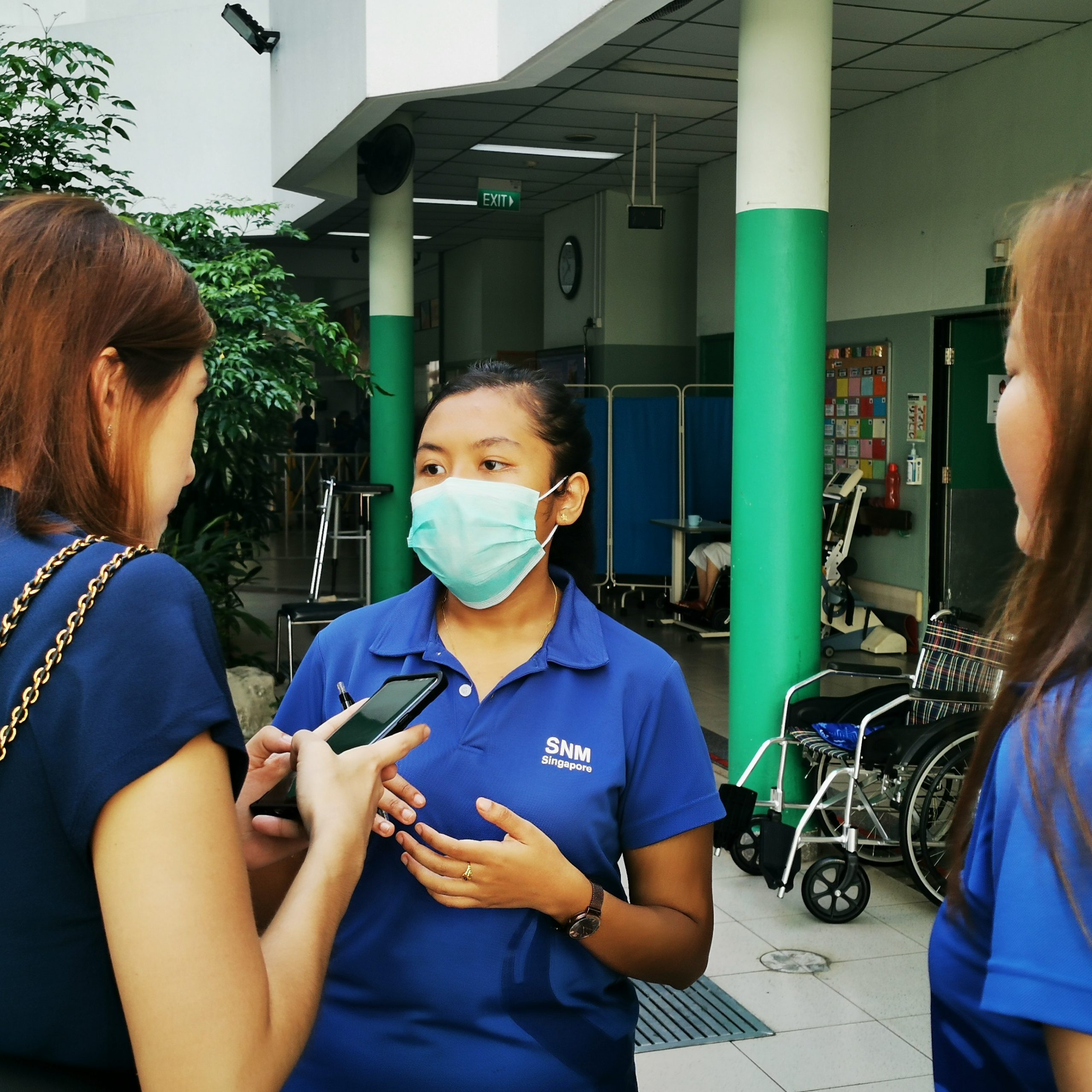 Noor Syazwani sharing about the programmes planned for elderly residents at Sree Narayana Mission Home. Photo by Zheng Zhangxin.
Noor Syazwani sharing about the programmes planned for elderly residents at Sree Narayana Mission Home. Photo by Zheng Zhangxin.
These are typically cognitive activities that keep residents' brains active with little movements, such as memory games, jigsaw puzzles, simple ball passing games, transferring of marbles with chopsticks as well as watching movies or listening to songs on an iPad.
These activities are usually one-on-one, with staffers in close contact with the residents wearing surgical masks.
The home also organises an occasional Hawker Food Day, where staffers buy back residents' favourite hawker food from the nearby Chong Pang market.
Putting residents' needs first
In the ongoing outbreak, the home's staff remain the key caretakers for the residents, ensuring that their daily routines are running smoothly.
When asked if they are worried about the Covid-19 outbreak, Noor said she and her colleagues are not too concerned despite working closely with the aged and ill.
"We are not worried as long as we maintain our hand hygiene all the time," said Noor.
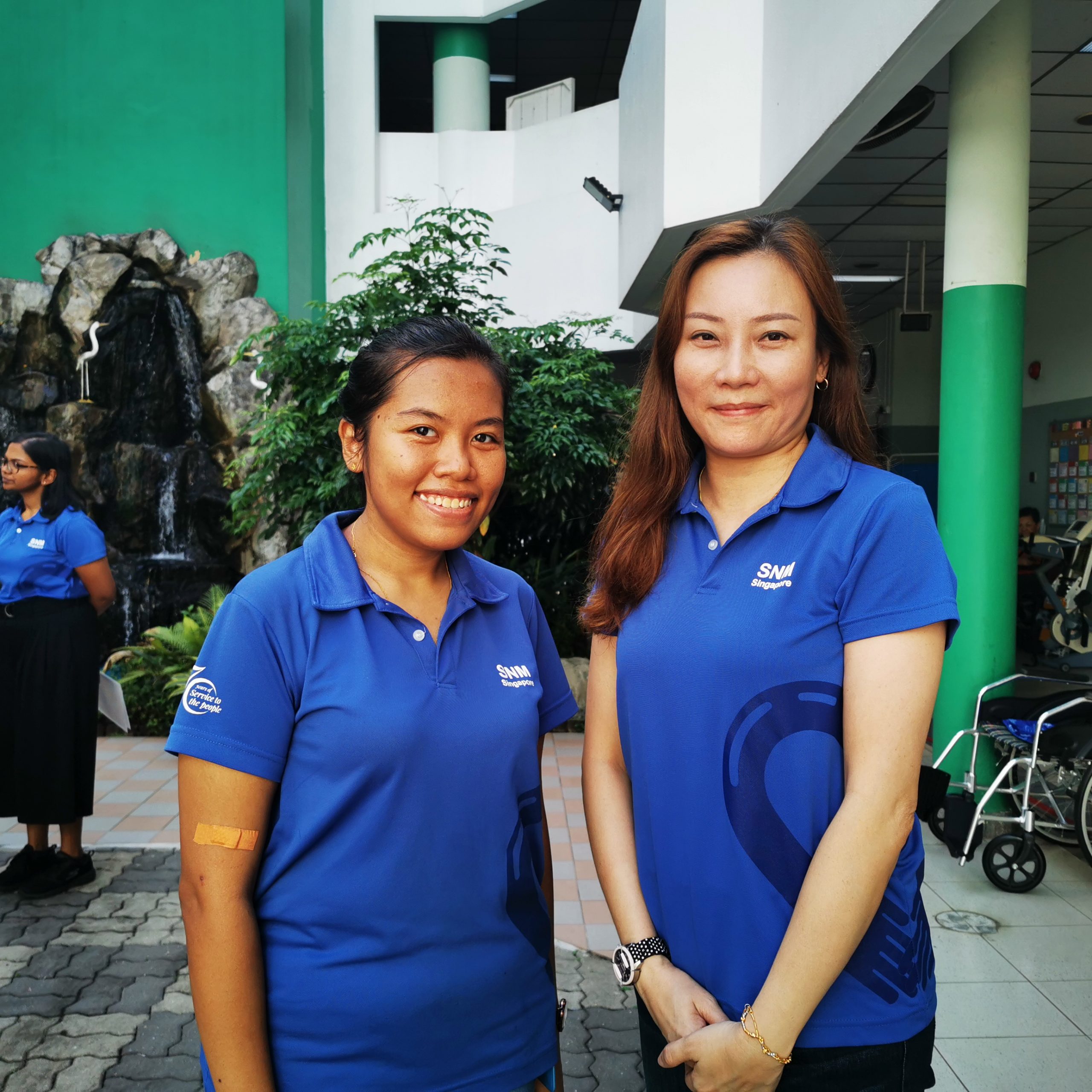 Sree Narayana Mission Home staff Noor Syazwani and Jeszica Su. Photo taken by Zheng Zhangxin.
Sree Narayana Mission Home staff Noor Syazwani and Jeszica Su. Photo taken by Zheng Zhangxin.
Hand rubs and washing hands frequently are among key practices staff adopt to keep themselves and the residents they serve safe.
In response to the same question, Su said she isn't as worried as her family is.
Not being able to explain clearly to her family the work she needs to do is also a challenge during this period, she added, when her working hours can be more erratic when having to attend to management duties.
"When we have precautionary measures in place right, they may not understand so sometimes when I'm called back to nursing home to manage and all that, family members will be 'oh you are going back to work again ah?'"
Despite that, Su says her family remains supportive and understanding towards her.
"They will always tell me, like my mum she will always tell me 'Please wash your hands ah'... and the usual thing lah."
Top photos by Zheng Zhangxin
If you like what you read, follow us on Facebook, Instagram, Twitter and Telegram to get the latest updates.
